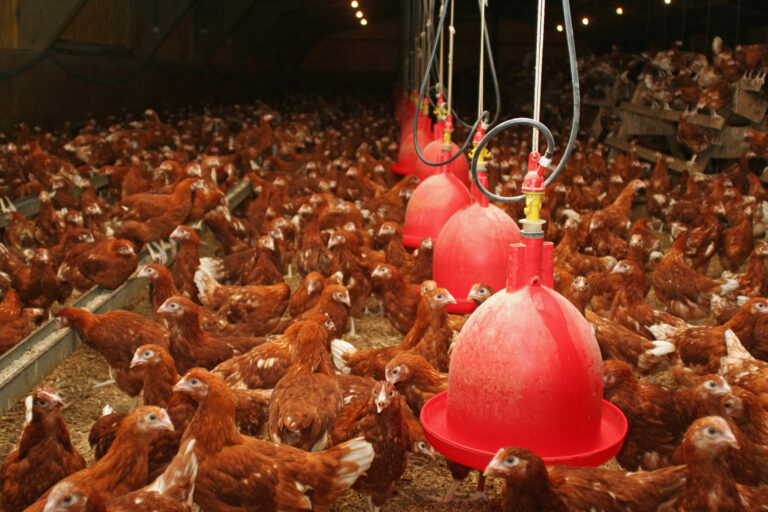The EU Energy and Environment Sub-Committee has published its report on Brexit: farm animal welfare. The report follows up on some themes identified and explored in the Committee’s recent report Brexit: agriculture.
The UK currently has some of the highest farm animal welfare standards in the world and there is cross-sector support for maintaining those high standards after Brexit.
The greatest threat to farm animal welfare standards post-Brexit would come from UK farmers competing against cheap, imported food from countries that produce to lower standards than the UK. Therefore, the Government’s wish for the UK to become a global leader in free trade is not necessarily compatible with its desire to maintain high animal welfare standards.
The demand for high-welfare products is ultimately driven by whether consumers prioritise purchasing those products, at added cost, rather than buying cheaper, lower-welfare products. The Committee found that consumers are not always aware of the difference between production systems or willing to pay a higher price for premium welfare products. This could exacerbate the challenge to UK farmers’ competitiveness arising from a potential increase in cheaper imports produced to lower welfare standards.
he report also found there is an overwhelming reliance on non-UK EU citizens to fill crucial official veterinary positions in the UK. The Committee calls on the Government to ensure that the industry is able to retain or recruit qualified staff to fill these roles post-Brexit.
Chair of the EU Energy and Environment Sub-Committee, Lord Teverson said: “The UK has some of the highest farm animal welfare standards in the world and UK producers are rightly proud of those. We see no reason why Brexit should diminish those, as long as the Government is aware of the challenges ahead and acts accordingly.
“We heard evidence of undeniable concern that opening up the UK market to free global trade poses a number of issues. As we said in our last report, Brexit: agriculture, the Government may find it hard to reconcile its free trade ambitions with its commendable desire for preserving high farm animal welfare standards.
“We heard overwhelming support for farm animal welfare standards to be maintained or improved. To help achieve that, we urge the Government to secure the inclusion of high farm animal welfare standards in any free trade agreements it negotiates after Brexit.
“Whilst Brexit provides the UK with the unique opportunity to review and potentially improve farm animal welfare standards, the Government will need to consider the effect of increasing standards on the competitiveness of UK producers as well the future trading relationship with the EU.”
Responding to the report, British Veterinary Association President Gudrun Ravetz said: “The report offers strong leadership and a clear message, emphasising the consumer and cross-sector consensus that current animal health and welfare standards must be at least maintained in Brexit negotiations. Prioritising these standards in trade negotiations could guarantee a unique selling point for the UK. As the report recommends, as consumers we must make sure we do not compromise quality for cost-savings in order to avoid a race to the bottom for welfare standards.
“We now need clarity from the Government on how underpinning standards and overarching principles, like Article 13 which ensures animal welfare requirements are fully considered in policy-setting, will be incorporated into domestic law.
“The report supports our view that animal welfare should be considered a public good and we reiterate our calls following the Secretary of State’s recent speech that a replacement CAP scheme should encompass animal welfare, animal health, disease surveillance, biodiversity and environmental stewardship to benefit not only UK producers, but consumers and wider society too.
“The EU Committee’s recognition of the vital role vets play in animal health, welfare and public health is extremely encouraging. Official Veterinarians (OVs) working in abattoirs protect and reassure UK consumers, certifying and supervising the import and export of animals and animal products to third countries. As I outlined in my evidence to the Committee, some estimates suggest 95% of OVs working in UK abattoirs graduated overseas, mostly in the EU. However, we are already hearing of fewer applicants for veterinary public health roles since the Referendum.
“There are significant concerns about the potential impact of a post-Brexit veterinary workforce shortage on the UK’s £100 billion agri-food sector, in terms of risking business and consumer confidence as well as the UK’s future export capability.
“A strong, sustainable veterinary workforce is absolutely vital to safeguarding animal health, welfare and public health post Brexit.”


